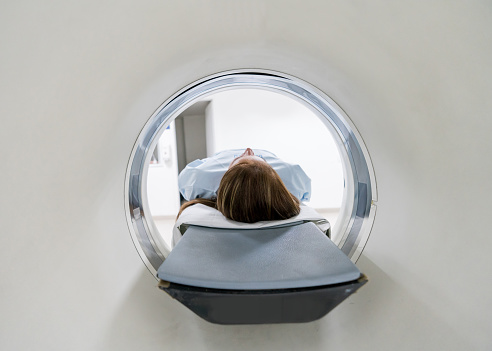MRIs are a popular way for a doctor to get high-quality images of your spine in order to come up with an effective treatment for back pain, but how do you know if you need an MRI? The term MRI is an acronym for Magnetic Resonance Imaging. The technology was introduced in the 1980s and has helped millions of people who live with lower back pain.
An MRI is most commonly used for pre-surgical planning to determine if a patient would benefit from a decompression or a lumbar spinal fusion procedure. MRI scans are very thorough and provide detailed information including the health of the discs in your back and the possible presence of a lumbar disc herniation or any spinal tumors.
MRIs can also rule out an infection or tumor, differentiate scar tissue from recurring disc herniation for patients who have had back surgery, and rule out the risk of injecting a steroid into an infection or tumor before performing an epidural injection. While an MRI is often beneficial for patients who have lower back pain or leg pain, it’s not always the right option.
There are many factors that need to be considered before someone undergoes an MRI scan. While many patients do benefit from getting an MRI, it’s sometimes best to wait a certain period of time because sometimes back pain will get better, and the procedure can be expensive. MRIs can sometimes detect problems that are not currently causing you any pain which can confuse the matter.
The reality is that MRIs can be very helpful and are used in many patients with back, neck, or leg pain. Chances are you aren’t really going to know if you need an MRI unless you are a medical professional. Your doctor is the one that will ultimately make the decision of whether or not you need an MRI based on their professional opinion. If you think you might need an MRI, the first thing to do is to schedule an appointment with Salem Radiology by calling (503) 399-1262 today.

